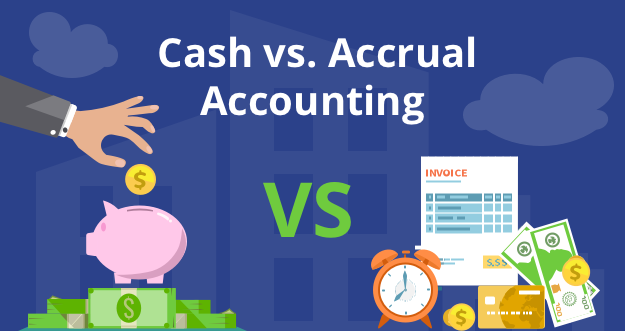
What’s Changing in 2026 for Charitable Contributions
The OBBBA introduces significant updates to the tax rules governing charitable contributions, for both individuals and corporations. These changes apply for tax years beginning after December 31, 2025 (so effectively the 2026 tax year) unless noted otherwise.

The Digital Age: Transforming the Accounting World
As we enter a new era defined by automation, artificial intelligence, and real-time data, financial accounting is undergoing its most profound transformation yet. Here's a look at how the digital age is reshaping the accounting profession—and what it means for businesses and professionals alike.

Health Insurance for Self-Employment
If you’re self-employed, the cost of health insurance can be a significant burden. Fortunately, the IRS allows eligible self-employed individuals to deduct the cost of health insurance premiums for themselves, their spouse, dependents, and even children under age 27 (even if not claimed as dependents). This deduction is a valuable tax benefit, as it reduces your adjusted gross income (AGI) and is claimed “above the line” on your tax return, making it available even if you don’t itemize deductions.

Tariff Impact on Small Business America
In the complex world of international trade, tariffs often seem like a distant concern — abstract policy tools debated in Washington and Beijing. But for small businesses across the United States, these taxes on imported goods hit closer to home than many realize. From rising costs to disrupted supply chains, tariffs can quietly erode profitability and create long-term challenges for America’s small business community.

Travel Deductions
If you travel for your business, understanding which travel expenses are deductible can help you maximize your tax savings and avoid costly mistakes. The IRS allows you to deduct certain ordinary and necessary expenses incurred while traveling away from your tax home for business purposes. Here’s a comprehensive guide to what you can and cannot deduct when it comes to business travel with an interesting tip at the end of the article.

Good Debt vs Bad Debt
When tax season arrives, many taxpayers look for convenient ways to pay their federal taxes. One option that’s grown in popularity is paying by credit card. The IRS allows you to pay your taxes by credit card, debit card, or digital wallet through third-party payment processors. But before you reach for your card, it’s important to understand the process, fees, payment limits, accepted payment methods, and key considerations. Here’s what you need to know.

Reasonable compensation for S-Corp Owners
Who must be paid reasonable compensation? Generally, an officer of an S corporation who performs substantial services and receives, or is entitled to receive, compensation in any form is considered an employee whose compensation is subject to federal employment taxes.

Small Business accounting: how to pay the least in taxes
Many individuals who start a business create an LLC and assume the tax savings are implied, but it's more complex than that.

Traditional IRA to HSA Conversion: “Qualified HSA Funding Distribution”
A provision in the Tax Relief and Health Care Act of 2006 allows a one-time IRA Rollover to an HSA, better known as a qualified HSA funding distribution (QHSAFD), and allows individuals a one-time IRA Rollover to an HSA account that can be used to fund your HSA.

HSA: A Retirement Account for your Health
Health care is often one of the most significant expenses in retirement. By contributing to an HSA while working, you can build a dedicated account to fund health care costs while working and fund future health care costs while in retirement. You can create a dedicated fund to cover expenses in retirement while preserving the value of your other retirement accounts.

Roth IRA: Basics
A Roth IRA (Individual Retirement Account) is a powerful tool for retirement savings, offering unique tax advantages and flexibility, whether you’re just starting to save or considering a conversion from a traditional IRA.

Cash vs. Accrual Accounting: What Small Business Owners Need to Know
As a small business owner, it’s easy to focus on sales, customer service, and daily operations. But one foundational decision can shape how you understand your business’s finances: your accounting method. The two most common approaches — cash accounting and accrual accounting — each have their strengths, and in some cases, the IRS may even require you to use one over the other.

What Your Accountant Wishes You Knew Before Year-End
As the calendar year draws to a close, most business owners are focused on finishing strong—closing deals, finalizing budgets, and preparing for the new year. But there’s one critical area that often gets overlooked: year-end tax preparation.

Demystifying Financial Statements: A Beginner's Guide to Accounting Reports
Financial statements might seem like a foreign language if you're just stepping into the world of business or personal finance. Pages filled with numbers, unfamiliar terms, and structured tables can quickly feel overwhelming. But here’s the truth: financial statements are just stories about a business—told in numbers.

Why Seller Financing Can Be Awesome (and Not as Scary as It Sounds)
If you’ve ever thought about selling your business, you’ve probably heard the term “seller financing” tossed around—and maybe you immediately thought, “Yeah, that’s not for me.” Totally understandable. On the surface, it sounds risky. Like… you sell your business, but don’t get all the money upfront? Why would anyone do that?

Top 5 Accounting Ratios and What They Reveal About a Company’s Health
When it comes to evaluating a company’s financial well-being, numbers tell the story. But with mountains of data in financial statements, where should you begin? The answer lies in accounting ratios—simple calculations that distill complex financial information into actionable insights.

Is Your Entity Type Costing You Money?
When you first launched your business, you probably chose a legal structure that seemed simple and fast—maybe a sole proprietorship or an LLC. But as your business has grown, that early decision might now be costing you thousands in unnecessary taxes.

How Financial Accounting Supports Transparency in Small Businesses
Running a small business comes with unique challenges—tight budgets, limited staff, and the need to wear many hats. In the midst of all this, maintaining transparency can sometimes take a back seat. But if there’s one thing that can build trust, improve decision-making, and set a small business up for long-term success, it’s financial accounting.

Why Accelerating Depreciation Might Be a Sneaky Tax Trap
Let’s talk about something that sounds like a smart move but can quietly bite you in the butt later: accelerated depreciation. On paper, it feels like a no-brainer. You buy a piece of equipment or a vehicle for your business, and the IRS says, “Hey, you can write off a big chunk of this cost right now instead of spreading it out over several years.”

Why Your CPA Should Be in the Room for Major Business Decisions
As a business owner, you're constantly faced with big decisions—expanding into new markets, investing in equipment, hiring key personnel, or even selling your business. These moments are exciting, but they’re also complex. And while it’s natural to loop in your lawyer or financial advisor, one crucial voice is often left out of the conversation: your Tax Advisor.
